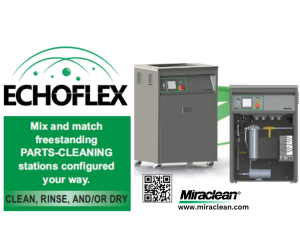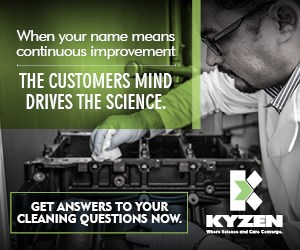Painting Stainless Steel
Question: I was interested in your solution for painting the stainless steel medicine cabinet, but I was hoping you would also include the “government job” solution done at work.
Question:
I was interested in your solution for painting the stainless steel medicine cabinet, but I was hoping you would also include the “government job” solution done at work. I, too, had to paint stainless steel. This is what I did and I am curious if you think it was right. I built a SS rudder for a 40-ft sailboat after the second fiberglass one broke apart. Then, after I had sanded and faired it out, I warmed it up and painted it with hydrofluoric acid to etch it, rinsed it and painted it with a wash primer. That was coated with a gel coat epoxy primer. Could I have eliminated the acid etch and just used the wash primer, or vice versa? B. C.
Answer:
Yes, your finish procedure was right but perhaps a bit risky. Stainless steel is relatively inert, hence paint adhesion could be a problem. Paint adhesion to stainless steel is enhanced by using pretreatments. Hydrofluoric acid etching is a pretreatment. Surface abrasion is a pretreatment. Wash primers are also pretreatments. I don’t like to recommend hydrofluoric acid etches because of the safety hazard. It must always be used under controlled conditions. Fortunately, you did not suffer any damage since you did it at work, hopefully under controlled conditions. When people use dangerous chemicals, I generally issue the following caveat: “Don’t do this at home kids!”
Now to answer your question, you can eliminate the hydrofluoric acid if you roughen the surface by abrading. This can be done by sanding, wire brushing or media blasting. It is important to note that the first step in any pretreatment is surface degreasing. After degreasing and abrading, apply the wash primer as soon as possible. After the wash primer has dried, the topcoat or gel coat can be applied. Since you are using stainless steel and corrosion is not a major issue, you can eliminate a corrosion resistant primer. Otherwise, a corrosion resistant primer such as a two-component epoxy should be applied over the wash primer and before the topcoat.
Related Content
-
Top 5 Areas to Consider Automation of Plating Operations
Automation for finishing operations can lead to improvements in process time, repeatability and consistency of quality. Yet, processes that make sense to explore for these operational efficiencies may not always be readily apparent.
-
NASF/AESF Foundation Research Project #122: Electrochemical Approaches to Treatment of PFAS in Plating Wastewater - 9th Quarterly Report
The NASF-AESF Foundation Research Board selected a project addressing the problem of PFAS and related chemicals in plating wastewater streams. This report covers the ninth quarter of work (January-March 2023). In this report, we describe our work on evaluating the performance of PFAS degradation by electrooxidation using surface fluorinated Ti4O7 anodes in batch mode.
-
Explore Cleaning Chemistry, Metal Finishing Applications and Wastewater Treatment Solutions
Hubbard-Hall Celebrating 175 years of excellence, Hubbard-Hall presents chemistry and equipment.












